Senegal
The quickest way to separate gold from rock, Sadio Camara says, is with a drop of mercury. In Senegal’s Kedougou Region, far from the capital Dakar and near the borders with Guinea and Mali, she and dozens of other women spent the day washing piles of sediment in search of gold. In front of her house a short walk away, she emptied a dime-sized packet of the silvery liquid into a plastic bucket of that sediment.
With bare hands and no mask, she swirls the mixture as her children watch. “I know it’s dangerous, because when we go to exchange the gold and they heat it again, those guys wear masks to avoid the smoke,” she says. But she says since she only processes a little gold at a time, she believes she is safe. But even small-scale exposure can carry serious risks.
Across West Africa, mercury — a potent neurotoxin — remains the dominant method for extracting gold from ore in the region’s booming informal mining sector, much of it illegal and unregulated. In Senegal’s gold-rich Kedougou region, women like Camara use the metal regularly, often without protective gloves and masks, to make a living. Mercury exposure can cause irreversible brain damage, developmental delays, tremors, and loss of vision, hearing and coordination.
Once released, it spreads easily through air, water and soil. Particularly after heavy rains, it contaminates rivers, poisons fish and accumulates up the food chain. “We are doing this because of ignorance and lack of means,” Camara says as her son played at her feet in the courtyard of her family’s home. “If the government know what is good for us, come and show us.” In artisanal mining, mercury is prized for its ability to bind quickly and easily to gold. Inside her kitchen hut not far from the stream, Camara heats a nugget of mercury-laced sediment with a metal spoon over an open flame. The toxic metal evaporates and leaves behind a kernel of gold.
There’s no mask, no gloves – just the raw materials and her bare hands. Her children stand just a few feet away, watching and breathing the fumes. The process is cheap, effective and dangerous. Camara said she doesn’t usually handle the burning herself - that task is typically left to men. But she and other women regularly mix and shape the mercury amalgam with no protection. "If you stabbed yourself with a knife it wounds you, if mercury did the same, people wouldn't touch it. But with mercury you can go years without feeling the effects.
The consequences come later,” says Doudou Dramé, president of an organization that advocates for safer conditions for gold miners in Kedougou. Women are also particularly vulnerable, says Modou Goumbala, the monitoring and evaluation manager at La Lumiere, an NGO that supports community development in southeastern Senegal. He says the mercury being used to separate the gold from the earth ends up in the region’s waterways, which women interact with a lot more than men in Senegalese society. “Women do the laundry with water, women do the dishes. Women wash the children. And women often use the waterways for this, not having sources of safe drinking water,” he says. That exposure can be especially dangerous for pregnant and nursing women. Mercury can cross the placenta, putting fetuses at risk of developmental delays and birth defects. Infants may also absorb the toxin through contaminated breast milk.
Gold can be extracted from earth without using mercury, using gravity separation, often achieved with machines like shaking tables. In 2020, the Senegalese government promised to build 400 mercury-free gold processing units, but so far only one has been constructed. During a recent visit, the rusting slab of metal sat unused beneath a corrugated roof. The machine is in Bantaco, 15 miles from Camara’s home, and it isn’t practical for most miners to use because of the logistical challenge of transporting ore there and back to where they are from. Goumbala says one machine per village would come closer to solving the problem.
Jen Marraccino is the senior development director at Pure Earth, an NGO that works to fight against mercury and lead poisoning, particularly in artisanal small-scale gold mining. She says that gravitational separation is a technology that can provide miners a way to get gold without endangering their health. “The more that this type of work happens in a particular region, the costs then go down for these technologies such as shaking tables. Building the supply chains to the international market, the costs go down. So, solutions can build and grow within a region,” she says.
AP's repeated efforts to schedule an interview with Senegal’s director of artisanal and small-scale mining were unsuccessful. The director later said the department had been suspended. He did not provide a reason.




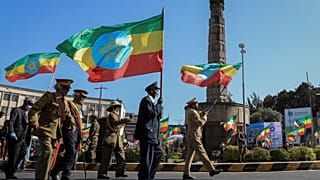
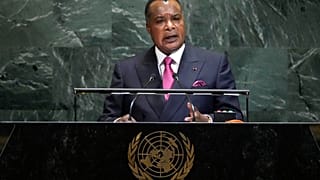


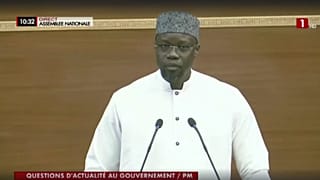
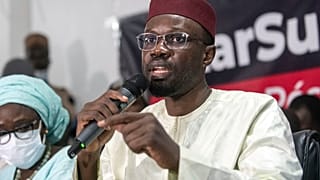
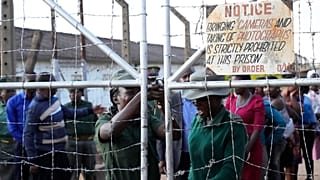
01:00
From Milano Cortina to Dakar 2026: Olympic mascots Tina and Ayo share the stage
01:00
19 soccer fans jailed for AFCON final chaos in Morocco
01:01
Gold rush fever grips township outside South African city of Springs
00:17
Autopsy shows dead Senegal student suffered multiple traumas
00:55
Senegal university crisis: Student bodies suspended after deadly unrest
01:05
Senegal and Egypt's top diplomats discuss strengthening bilateral relations